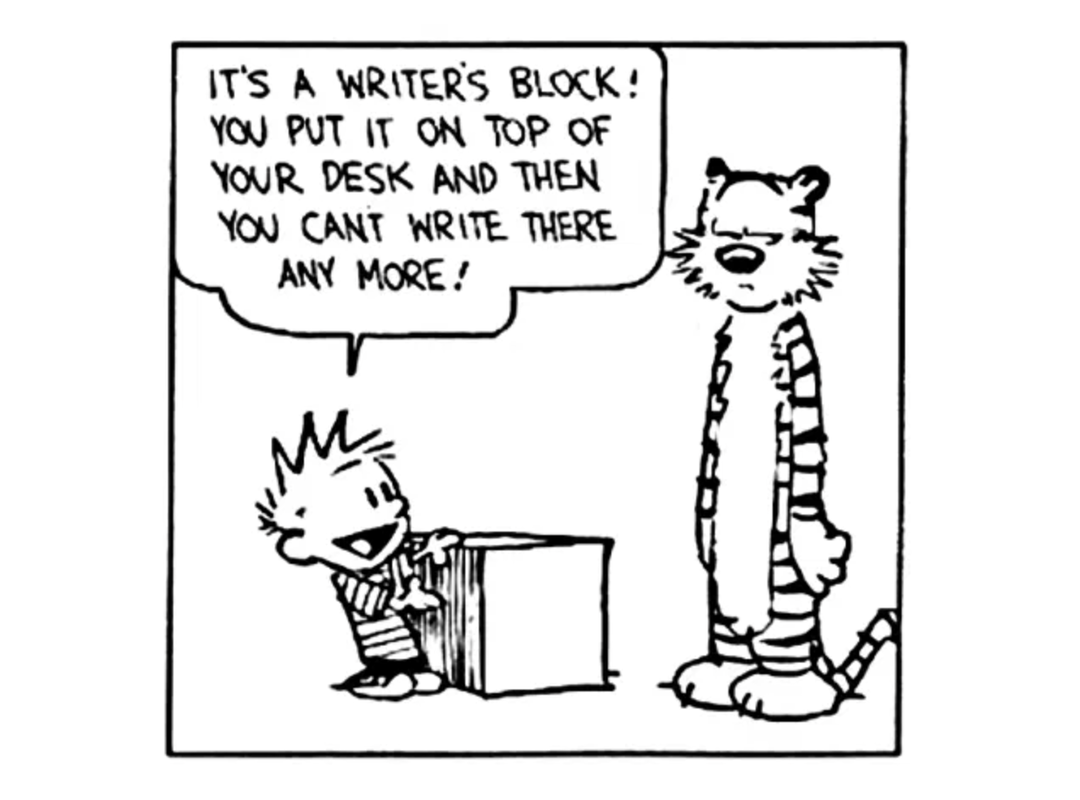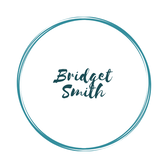|
There are a million articles reflecting on the concept of writer's block - what it is, why it happens, and what it says, existentially, about you. This is not one of those articles. I promise there are lots of good ones, and I encourage you to google for them. I'm not concerned with what writer's block is, or what it says when my motivation dips - I want quick, easy ways to get through it. That's what this article is for. Have you ever gotten ready to write: sat down, mug of tea at the ready, snacks close at hand, snuggled up with a blanket, and ready to knock out a chapter or two? Have you ever then sat and stared blankly at the page? Struggled through 50 words, called it good, and given up? Been so frustrated that you haven't wanted to pick your work back up for days or weeks? That's writer's block. It's that feeling when you're looking at a page and, even if you know what to write, you just can't do it. It happens to all of us - the number of times I've taken 3 weeks to write 6 pages, then knocked out 25 pages in 3 days, is truly preposterous. Because I share in this struggle, I have some tricks I use to help me break through writer's block and keep the words flowing - especially useful if you're on a deadline, or need to keep your motivation high. Try a new location. This can be literally anywhere you don't usually write. If you typically sit at a desk, try your couch. If you migrate around the living room, take a bath and bring your laptop or a notebook. Try heading out to a park or coffee shop (I personally love writing at coffee shops), or even going to a friend's house. Changing your setting can sometimes help you jumpstart in a new way - it helps your brain refresh, and gets you out of the space you have been stuck in for a while. Jump back to your world. For those of you who are writing something set in a different world, go back to your worldbuilding documents. I love pulling up my map and imagining stories taking place in different provinces, or looking through and adding some detail to organizations in my world. It's a different kind of creating than writing a chapter - it's just for you, and it helps you flesh out the setting. Then, once you have gotten a cool idea, bring it into your book. Or, revisit your characters. My main characters all have backstories - old relationships, families, hobbies, and fears. My secondary and more minor characters often don't (or if they do, it's just bouncing around in my brain). Revisit these characters, and build them out a little. Not only will it help you get started writing again, but it will ultimately make your story better, your characters feel more whole and realistic, and your book more interesting. Talk to someone about it. Not everyone likes to share their book journey, but if you've found this website you probably know I'm huge on it. I talk to my boyfriend and my mom (hi mom) all the time about what I'm writing - I bounce ideas off them, complain about my characters, and ask questions. My process is very collaborative, which is something authors often struggle to adjust to. But the reality is that publication is a huge collaboration. You have to take feedback from your editor(s), as well as beta readers and other people. If you start getting feedback early and get used to it, you'll have a much easier time down the road. Edit a different chapter. I LOVE editing as I have written about before. One of the reasons I love it is that it helps me improve before the book is even done. Go back and read old chapters out loud - you'll both catch errors, and it might spark an idea about how to keep moving forward with the story. Still stuck? That's okay - and I've been there too. The tips above are great if you just need a little bit of a kick in the butt. Sometimes, we need a more major shift, to help us reset and get started again. In that case..... Take a break. I don't mean walk away and keep thinking about it - I mean actually switching to a different project. Start a blog, write a chapter of a new book, capture some ideas for a new world. Take an online class. Get your brain distracted and out of the space you're stuck in. It's not bad to leave a project alone for a while, and it will actually often make your ideas better. You have to give your brain room to breathe. This last tip is one of the most unsatisfying, but is what I consider my "smash in case of emergency" option. Put something, anything, down on the page. That's right, just keep writing. What terrible advice, huh. The reason it's in here is that it works. Writer's block happens when you can't think of what to write. So stop caring, and get some words down. I've written chapters before that look like this: She shook her head and sighed. Men could be so foolish. Somethingsomething - Caidy and Margot have a conversation. They both think relationships are exhausting. Maybe Margot shares something about her family? Could reference her mom and build out her character a little. Once they finished dinner, Caidy decided to go to bed (need to add a paragraph here - how does she get to bed? What is she wearing?) It's like a more expanded outline of sorts - it can help you keep moving forward, and make it easier. When I look at my notes above, I know what else I have left in the chapter: I need to write a conversation between Caidy and Margot, and I need to write a paragraph about Caidy getting ready for bed.
Writer's block doesn't have to be the end of the world, you just need strategies to address it. I know you can get through it, because I've done it myself dozens of times. So, what are you waiting for? Comments are closed.
|
AuthorBridget is the author of Summer Twilight, available for purchase now! Categories
All
Archives
March 2021
|

